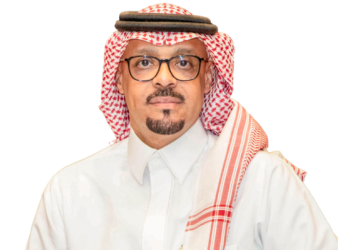
A joint venture with Arabtec Holding follows a string of successes in the Middle East. The man at the helm of the South Korean giant outlines his future strategy for the company
On the top floor of Samsung Engineering’s new headquarters on the fringe of Seoul, the company’s chief executive officer (CEO), Ki-Seok Park, considers the current state of the Middle East engineering, procurement and construction (EPC) market.
“In the Middle East, a lot of players are entering the market and this is making the competition very fierce,” he says. “This means companies are bidding dangerously low for projects and this is not something Samsung Engineering has ever believed in doing.”
That statement would probably be viewed as ironic by many of Park’s peers, but it is said with conviction. He harbours a genuine fear of the market spiralling out of control if the low prices tendered do not reflect a company’s capabilities.
South Korean pioneer
Samsung Engineering is widely seen as the pioneer of the bullish business strategy known as the South Korean Model of EPC contracting that has become a feature of the Middle East energy projects sector in recent years.
The model calls for extremely aggressive pricing at the tender phase and then rigorous project management and procurement during execution. The projects are carried out on a lump-sum turnkey (LSTK) basis, which shifts the risk completely on to the contractor. Samsung Engineering’s meteoric rise to become one of the world’s leading contractors can be traced directly to this type of model gaining favour over cost-plus deals in the Middle East.
We … differentiate ourselves in terms of cost competitiveness and this has brought us success
Park, appointed head of Samsung Engineering in 2010, has steered the company through the most successful period in its history. He joined the firm after finishing university in 1979 and his early career was in the hydrocarbons sector with many of his appointments in Samsung Engineering’s fledgling overseas division.
The Middle East has played a major role in Samsung Engineering’s success. Since 2001, the region’s contracting market has accounted for $26bn of orders for the company. Between 2001 and 2009, its accumulated business was $11bn, then between 2010 and 2012, the firm gained $15bn-worth of orders from the region.
The sharp upturn in Samsung Engineering’s Middle East orders has closely mirrored both the LSTK contract model gaining favour with clients in the GCC and the huge capital expenditure programmes being initiated by the region’s governments since 2009.
It is obvious Park does not feel completely comfortable with his company being regarded as the pioneer of South Korean success in the Middle East. He believes submitting extremely low bids and taking on more risk is an oversimplification of what the firm does.
“You have to remember that we only follow the instructions of the client and if the client wants LSTK, then that is what we provide,” he says. “Taking on additional risk is what any company needs to do if they want to expand and it is what we have done.”
Park admits Samsung Engineering’s core capabilities fit well with the LSTK model and managing costs in terms of equipment procurement, purchasing and manpower are all areas in which it has proved its competence.
He is also correct in his assertion that aggressive bidding and taking on higher risk is not necessarily guaranteed to win EPC work. Many companies have tried to incorporate these two factors into their business plans. Without tight project management and an extremely effective supply-chain, however, contractors can find themselves in serious trouble.
“Outsourcing takes up 85 per cent of our cost structure, so it is vital to have effective and efficient supply-chain management if you want to succeed,” Park says. “At Samsung, we strive to differentiate ourselves in terms of cost competitiveness and this has brought us success.”
Procurement strategy
Park says the company rarely delays a project to negotiate a minor change in scope and will usually absorb the cost to save time. He also cites a fully integrated construction system with direct labour in the UAE and Saudi Arabia, as well as a global procurement strategy.
Samsung Engineering’s procurement strategy is the source of much speculation in the Middle East, with many assuming the firm only sources from South Korea. Park insists this is not the case and that a global company must rely on global procurement if it wants to survive.
The firm has come a long way since it was founded as Korea Engineering in 1970. It was the first South Korean company focused solely on engineering and has grown from building small domestic process plants into a globally recognised company that has shares trading at more than $81 on the Korea Exchange.
The Samsung Group acquired Korea Engineering in 1978 and still retains a 27 per cent stake in the company. A further 39 per cent of the firm is held by foreign shareholders.
The rapid rise in recent years of the Samsung Group as a global brand across several sectors, most notably electronics, has followed a similar trajectory to Samsung Engineering’s worldwide expansion. Its success has resulted in 40 per cent growth since 2006. After Park’s appointment as CEO, it has accelerated further still.
Turning Samsung Engineering into a global company is what we are aiming to do
“Since I was appointed CEO, I have been driving a strategy aimed at expanding both the geographical footprint of our operations, as well as diversifying the sectors we operate in,” says Park. “This has been a success and we now have active projects across the Mena [Middle East and North Africa] region, of which 40 per cent are outside of our core hydrocarbons business.”
Core markets
Geographically, Samsung Engineering’s two core markets in the region have traditionally been the UAE and Saudi Arabia. This is still very much the case with the vast majority of the firm’s backlog in these countries.
However, Samsung Engineering is one of the few EPC companies that entered the Iraq market early and has various schemes under execution in Bahrain, Algeria and Qatar.
In terms of sectors, petrochemicals, refining and gas still dominate, but the company has branched out into new areas over the past three years. “We have expanded to upstream oil and gas, metallurgy and power and water and these sectors now account for 40 per cent of our business,” says Park.
Moving into new industrial sectors offers some tough challenges. Securing the engineering talent capable of executing a diversified portfolio of projects is not easy. What is surprising is Samsung Engineering has managed this without making any significant acquisitions or mergers.
“We have given a lot of thought to how to best grow the business and, over the past three years, the majority of our growth has been organic,” says Park. “This is not to say we haven’t looked at inorganic growth, it’s just that we have not yet found a company we want to acquire that fits into our business model.”
In 2010, Samsung Engineering was based across several offices in the Gangnam district of Seoul and had 5,882 employees. By December 2012, that figure had risen to 8,900 and is expected to hit 9,100 by the end of 2013. The increase in personnel prompted the move to new premises.
Most employees are now housed at the company’s new headquarters of which Park is visibly proud. The new premises resemble a university campus with cafes and restaurants, a gym, a doctor’s surgery and retail outlets all on site. Park was keen to put workers in a more collegiate atmosphere in the belief that it would foster more creative thinking among employees.
“We have grown very quickly and have more than doubled our headcount in the past three years,” says Park. “This has forced us to ensure our employees are trained properly and that we are all focused on the core principles of our business plan. Our new headquarters help with that.”
Many of the initiatives introduced by Park during those three years are progressive compared with Samsung Engineering’s South Korean rivals. For example, all business correspondence at the company has to be conducted in English. It is likely the initial implementation of this strategy was not easy, but as a result, the company has been able to attract highly skilled foreign talent to move to Seoul and work for the company.
Today, 1,600 employees or 18 per cent of the workforce are non-Korean. Such a high percentage of foreign workers is extremely unusual for a South Korean company.
Park says the Middle East will continue to play a vital role in the company’s business strategy despite expansion plans that include winning work in the CIS region, Latin America, Africa and Asia. He cites 2012 as an example of how important the region has become.
“The Middle East made up 50 per cent of our new business in 2012,” says Park. “Hydrocarbons made up 52 per cent and non-hydrocarbons 48 per cent.”
Samsung Engineering’s success in the Middle East has prompted the company to build facilities in the region aimed at increasing the amount of locals the company employs, especially in technical positions. The firm has a $100m training centre at Jubail in the Eastern Province of Saudi Arabia that trains local engineers. The Samsung Naffora Techno Valley was well received by Saudi Arabia and the success of the facility has prompted a similar move in its other core market, the UAE.
In mid-April, it was also announced that Samsung Engineering had signed a memorandum of understanding with the UAE’s Arabtec Holding that could see a joint venture being formed to bid on selected megaprojects across the region. A similar training centre to the one in Jubail will be constructed in Abu Dhabi.
“Arabtec has many subsidiaries with specialisation in all construction sectors,” says Park. “We have $9bn-worth of projects underway in the UAE and we hope to expand our presence in the Mena region, as well as make a contribution to the UAE community.”
Global ambitions
Park acknowledges that Samsung Engineering’s journey to becoming a truly global player in the EPC contracting market is not going to be without growing pains. The company made a loss in the first quarter of 2013, its first since 2003. Despite this, Park is still confident of making a profit of $315m-360m for the year.
He emphasises that rapid organic growth involves the kind of extensive investment that will sometimes result with a dip into the red. In this case, a US project being delayed was cited as the main reason behind the loss.
Park does not dwell on his first three years in charge of Samsung Engineering for long, as he is keen to continue the transformation of the company into a world-leading EPC contractor.
“When I look at the future of this company, I see offices in cities around the world that will be full of local employees,” he says. “Turning Samsung Engineering into a global company is what we are aiming to do and, while we have made a great start, there is still a lot of work to do.”
Career history
1979 Joined Samsung Engineering
1992 General manager, overseas business development department
1996 Managing director, Thailand office
2000 Chief operations officer of hydrocarbons division
2009 Chief marketing officer
2010 President and chief executive officer
You might also like...

Red Sea Global awards Marina hotel infrastructure
18 April 2024

Aramco allows more time to revise MGS package bids
18 April 2024

Morocco tenders high-speed rail project
18 April 2024
A MEED Subscription...
Subscribe or upgrade your current MEED.com package to support your strategic planning with the MENA region’s best source of business information. Proceed to our online shop below to find out more about the features in each package.









